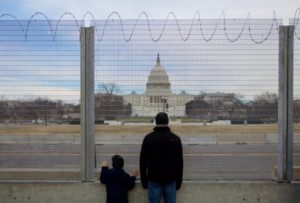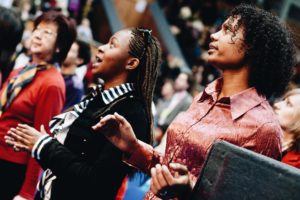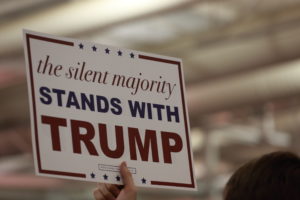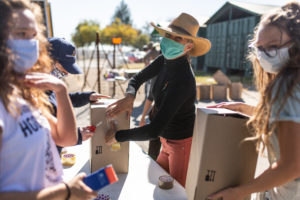All Research
CommentaryMay 5, 2021
Biden’s Push For Big Government Solutions is Popular Now — But it Could Backfire
In the wake of a once-in-a-generation pandemic that has required sustained national intervention and leadership, Americans may be coming around to the benefits of big government.
CommentaryMarch 26, 2021
Support for Political Violence Among Americans is on the Rise. It’s a Grim Warning About America’s Political Future.
In the wake of the Capitol uprising, we have been forced to reckon with the uncomfortable truth that political violence is no longer a theoretical concern.
Survey ReportMarch 4, 2021
Social Isolation and Community Disconnection are Not Spurring Conspiracy Theories
After the 2020 presidential election, a new survey finds acute partisan disagreement over whether President Biden was legitimately elected and whether political violence can ever be justified. Although most Americans believe the 2020 election was a fair contest, most Republicans disagree and express concerns about voter fraud. Republicans are more likely to embrace political conspiracies, including the existence of a “Deep State” working to thwart Donald Trump’s presidency and the Q-Anon conspiracy that Trump is fighting a cabal of sex traffickers.
Survey ReportFebruary 11, 2021
After the Ballots are Counted: Conspiracies, Political Violence, and American Exceptionalism
The January 2021 American Perspectives Survey looks at post-election sentiments, beliefs in conspiracies, attitudes toward political violence, political segregation, and general feelings toward the United States.
CommentaryDecember 22, 2020
Democrats and Republicans Should Argue More — Not Less
Our survey showed that when our social circles include a more diverse mix of political beliefs, we are more open to argument and less ideologically extreme. And, arguably, the best way to get to this point is to discuss — and disagree about — politics more.
Survey ReportDecember 15, 2020
Religious Diversity and Change in American Social Networks: How Our Social Connections Shape Religious Beliefs and Behavior
The American Social Network Survey uses a unique design to measure the race, educational background, politics, and religion of our social contacts. The results reveal that personal behavior and beliefs are socially constructed—what we know is influenced by who we know. Americans who have more politically diverse social networks express greater openness to compromise and are less bound to their own beliefs. Racial and ethnic diversity in Americans’ social networks makes one more sensitive to race issues.
Survey ReportDecember 9, 2020
A Turning Point? Americans Grapple With COVID-19 Amid Enduring Partisan and Racial Divisions
The November 2020 APS explores how Americans are grappling with COVID-19 amid soaring numbers of infections. Though large partisan divisions persist, more Americans say they would get a free, FDA-approved vaccine. It also challenges the “shy Trump voter” hypothesis and explores possible explanations for Trump’s increased support among non-white voters.
CommentaryNovember 24, 2020
Could Social Alienation Among Some Trump Supporters Help Explain Why Polls Underestimated Trump Again?
There was a large swing to Trump among white voters who had low levels of social trust — a group that researchers have found is also less likely to participate in telephone surveys.
CommentaryNovember 19, 2020
The 2020 Election Was a Perfect Example of the Weaknesses — and Strengths — of Political Polls
For those of us interested in understanding the world, polling offers an incredibly useful and cost-effective tool. It’s critical that we get it right.
Survey ReportNovember 18, 2020
Hopes and Challenges For Community and Civic Life: Perspectives From the Nation and Indiana
The coronavirus outbreak created tensions between urban Americans hit hard by the virus and small towns and rural communities. Despite these disparities, surveys find that, before COVID-19, Americans expressed many of the same ideas and priorities regarding their communities, revealing we may not be as divided as one might think.










